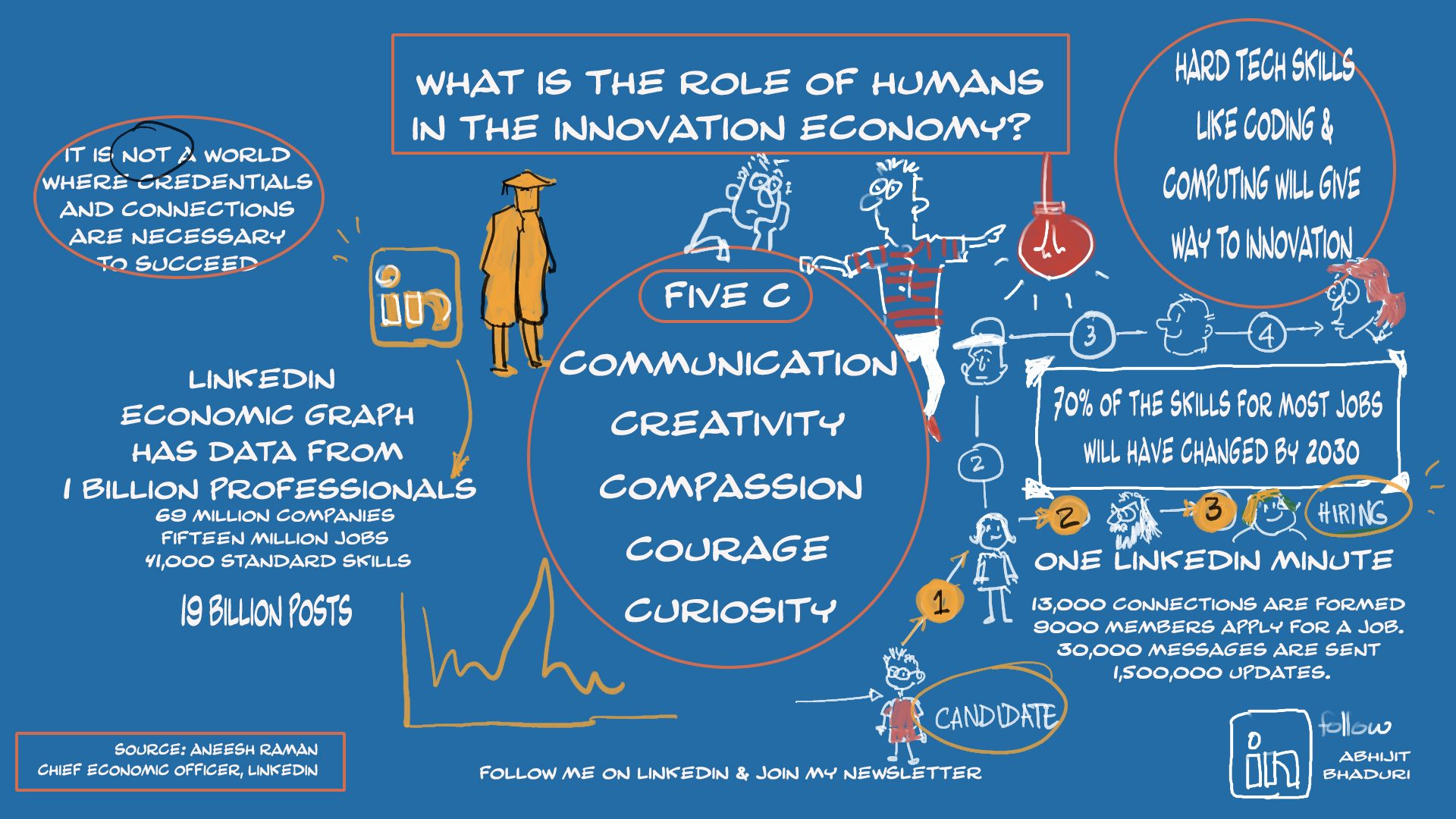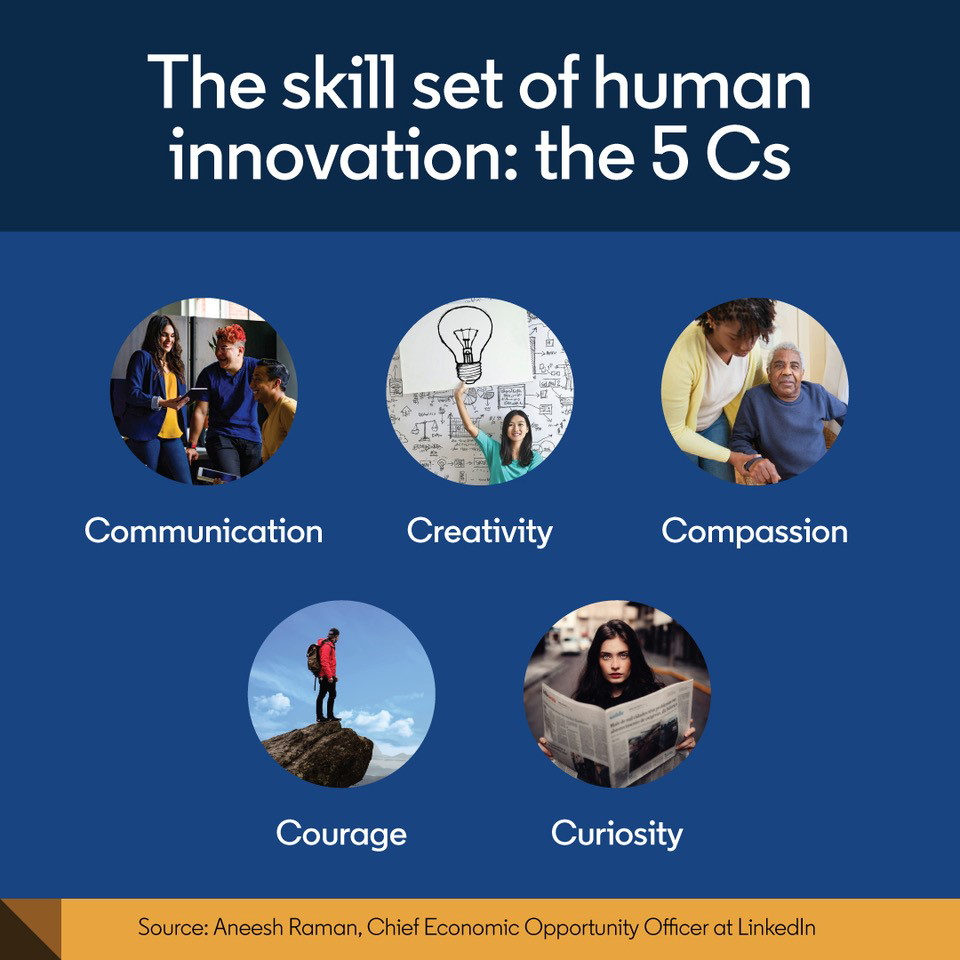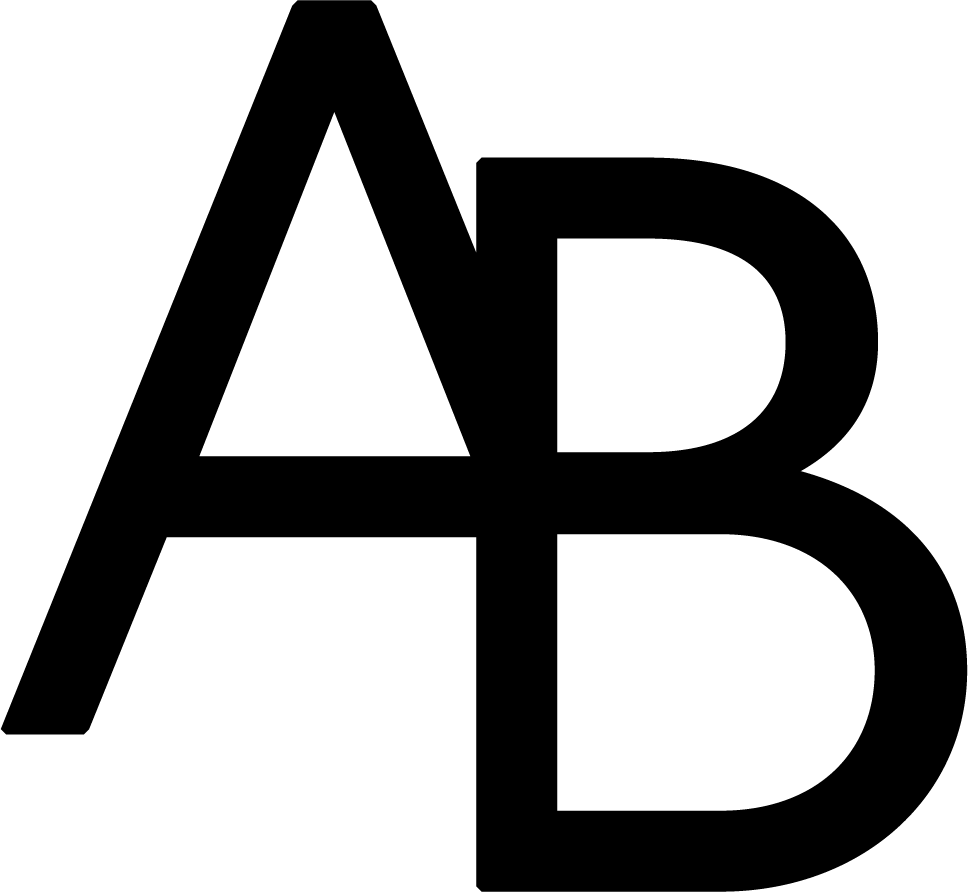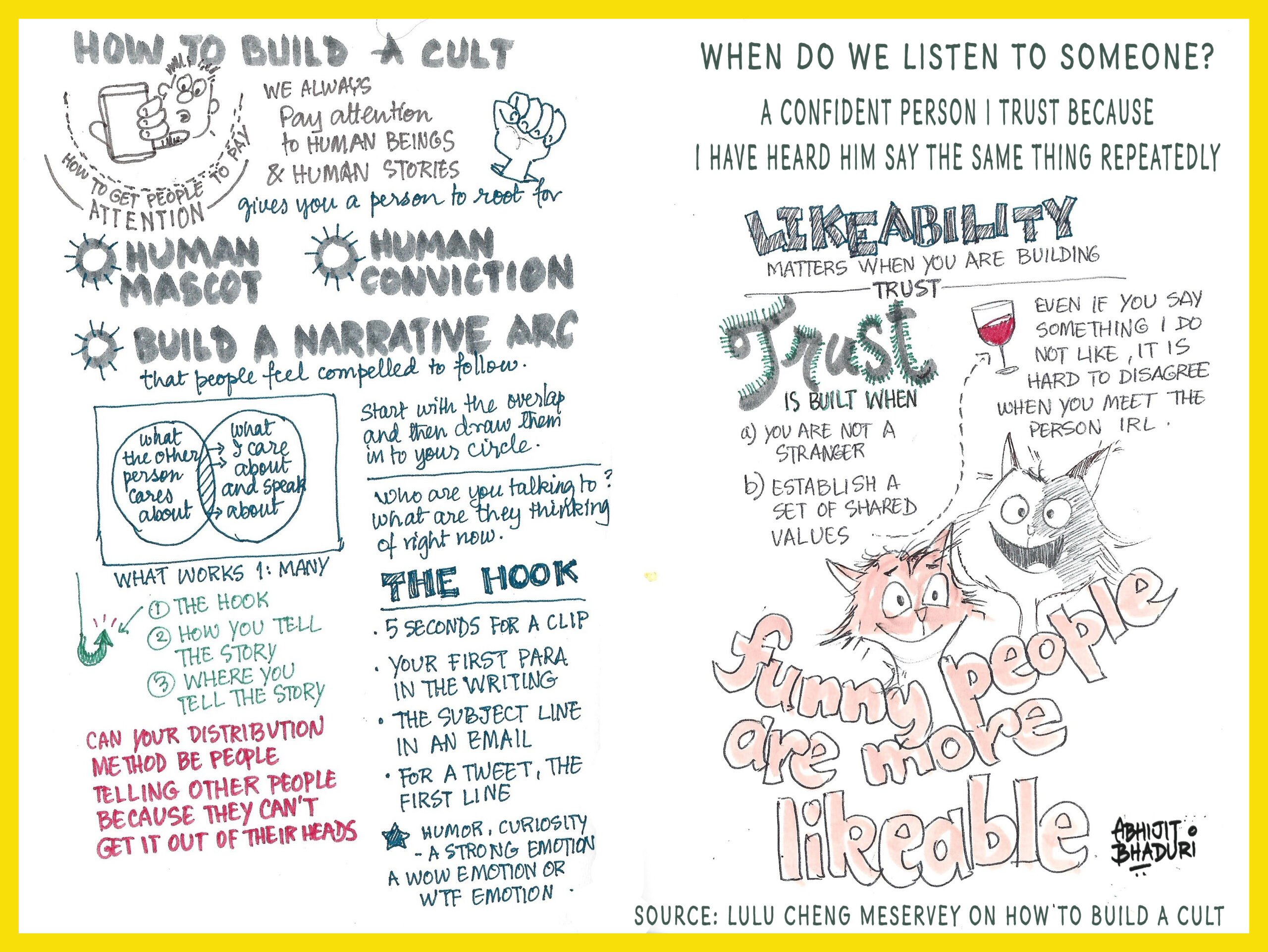
Right now, we stand at the most consequential moment in our careers—the redefinition of human work. Throughout history, transformative technologies like the steam engine, electricity, and computing have shifted where and how we work. AI is the next great disruptor, marking the shift from the knowledge economy to the innovation economy—one where human creativity, empathy, and problem-solving take center stage.
The Second-Order Effects on Individuals
This transition reshapes not just jobs but how individuals grow, contribute, and find meaning at work. The innovation economy demands a new skill set—the Five Cs: Communication, Creativity, Compassion, Courage, and Curiosity. Unlike technical skills, these core human capabilities cannot be automated. They form the foundation of leadership, collaboration, and trust-building across diverse teams and industries.

For individuals, the second-order effects are profound:
- Career Fluidity Over Fixed Roles – Traditional career paths dissolve, replaced by dynamic, project-based work requiring continuous reinvention. Those who cultivate adaptability and interdisciplinary skills will thrive.
- Democratization of Innovation – Historically, access to resources dictated who could bring ideas to life. AI and digital platforms level the playing field, empowering a broader range of talent to innovate—provided they can navigate the evolving landscape.
- The Redefinition of Success – In an AI-augmented world, success shifts from mastering a fixed skill set to harnessing human ingenuity. Employees must become lifelong learners, building emotional intelligence alongside technical literacy.
Navigating the Change
To help individuals succeed, organizations must rethink their talent strategies. Three priorities emerge:
- HR as AI Strategists – HR leaders must co-own AI strategy, ensuring talent and technology evolve in tandem.
- Learning as a Daily Practice – Organizations should embed learning into everyday workflows through apprenticeships, skill rotations, and AI-powered coaching.
- Empowered People Managers – Managers must transition from task supervisors to energy enablers, fostering innovation and engagement at every level.
The Path Forward
AI isn’t just disrupting work—it’s redefining human potential. Companies that prioritize people over technology will gain a lasting competitive edge. The future of work is here, and it’s more human than ever.
Using AI in Talent Management

Organizations are leveraging AI to make more objective hiring and promotion decisions based on data rather than gut feelings:
- Predictive Analytics: Companies like IBM use AI to predict which employees might leave, allowing proactive retention strategies. Their Watson Career Coach helps identify flight risks based on patterns in employee data.
- Performance Assessment: Workday’s Skills Cloud uses machine learning to identify employee skills and match them to organizational needs.
- Bias Reduction: Tools like Pymetrics use neuroscience games and AI to assess candidates on traits rather than backgrounds, reducing unconscious bias in hiring.
Automated Sourcing, Screening & Candidate Matching
AI has transformed recruitment by automating time-consuming tasks:
- Intelligent Sourcing: Eightfold AI uses deep learning to find passive candidates by analyzing billions of talent data points across the web.
- Resume Screening: Ideal can screen thousands of resumes instantly, ranking candidates based on match to job requirements and reducing time-to-hire by up to 75%.
- Interview Automation: HireVue offers AI-powered video interviews that analyze candidate responses, facial expressions, and word choices to predict job fit.
- Chatbots: Tools like Mya engage candidates throughout the hiring process, answering questions and scheduling interviews automatically.
Personalized Skill Development
AI is enabling customized learning experiences for employees:
- Adaptive Learning Platforms: Degreed uses AI to recommend personalized learning content based on individual skill gaps and career goals.
- Real-time Feedback: Humu sends personalized “nudges” to employees to encourage behavior changes that improve performance and engagement.
- Career Pathing: Gloat uses AI to match employees with internal opportunities based on their skills and aspirations, creating more dynamic career paths.
- Skill Gap Analysis: 365Talents analyzes company data to identify organizational skill gaps and recommends targeted development strategies.
Future Trends
The future of AI in talent management is likely to include:
- Augmented Intelligence: AI working alongside HR professionals to enhance decision-making rather than replace them.
- Ethical AI Frameworks: More robust guidelines for responsible AI use in people decisions.
- Extended Reality: VR/AR for immersive learning and realistic job previews.
- Voice Analytics: Using speech patterns to assess candidate fit and employee engagement.



